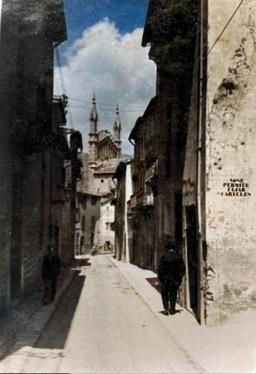What challenges do historical facades in Mallorca face from urban development and commercial pressures?
Similar Topics
historical facades mallorca
urban development challenges
commercial pressures
traditional architecture preservation
tourism impact
architectural heritage
restoration challenges
sustainable urban growth
Historical facades in Mallorca face a variety of challenges stemming from rapid urban development and increasing commercial pressures. As the island continues to attract tourists and new residents, construction projects driven by economic interests often prioritize modern architecture and infrastructure over the preservation of traditional building exteriors. This shift can lead to the alteration or even demolition of historic facades, which diminishes the authentic charm and cultural identity of many towns and cities on the island. Additionally, the demand for larger commercial spaces and high-end accommodations sometimes results in the inappropriate integration of contemporary materials and designs that clash with the original architectural styles.
The pressure to accommodate new businesses and tourism-related ventures often places historical facades at risk from neglect or insensitive renovations. Owners may opt for cost-effective solutions that compromise the integrity of these structures, rather than investing in careful restoration. Moreover, urban expansion can lead to increased pollution and vibrations from traffic, which further accelerate the deterioration of fragile stonework, intricate carvings, and other decorative elements. The challenge extends beyond mere aesthetics; it involves safeguarding intangible heritage and preserving Mallorca’s historical narrative, which is embodied in its distinctive architecture.
Efforts to manage these pressures require a delicate balance between development and conservation, often necessitating intervention from local authorities and heritage organizations. Strict regulations and guidelines can help ensure that any modifications to historical facades maintain their original character and craftsmanship. Community awareness and appreciation for Mallorca’s architectural heritage are also crucial in supporting sustainable urban growth that respects the island’s past. Without such measures, the ongoing commercial expansion risks eroding the very features that make Mallorca’s towns and cities unique and attractive to residents and visitors alike.
The pressure to accommodate new businesses and tourism-related ventures often places historical facades at risk from neglect or insensitive renovations. Owners may opt for cost-effective solutions that compromise the integrity of these structures, rather than investing in careful restoration. Moreover, urban expansion can lead to increased pollution and vibrations from traffic, which further accelerate the deterioration of fragile stonework, intricate carvings, and other decorative elements. The challenge extends beyond mere aesthetics; it involves safeguarding intangible heritage and preserving Mallorca’s historical narrative, which is embodied in its distinctive architecture.
Efforts to manage these pressures require a delicate balance between development and conservation, often necessitating intervention from local authorities and heritage organizations. Strict regulations and guidelines can help ensure that any modifications to historical facades maintain their original character and craftsmanship. Community awareness and appreciation for Mallorca’s architectural heritage are also crucial in supporting sustainable urban growth that respects the island’s past. Without such measures, the ongoing commercial expansion risks eroding the very features that make Mallorca’s towns and cities unique and attractive to residents and visitors alike.
🧩 Related Questions
Related Question
In what ways does the University of the Balearic Islands support international students’ integration into the local community?
Related Question
What role did women play in maintaining family stability during periods of male migration in Mallorca?
Related Question
In what ways has Mallorca adapted its services and infrastructure to cater to German-speaking residents and visitors?
